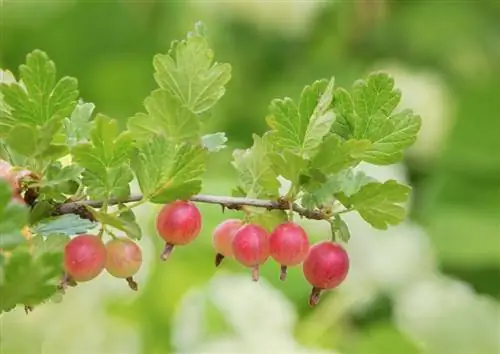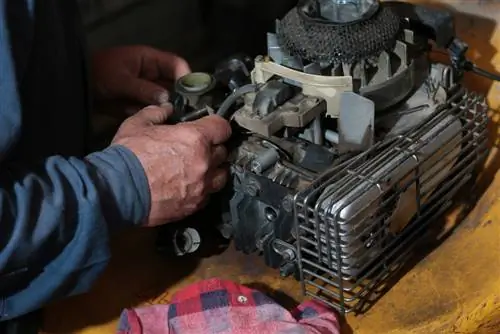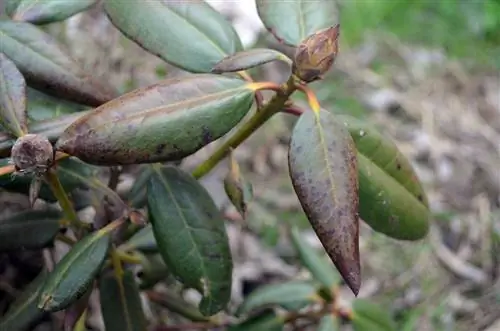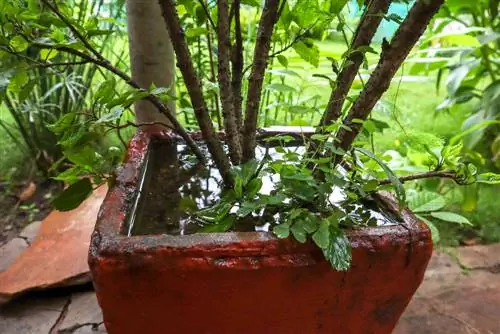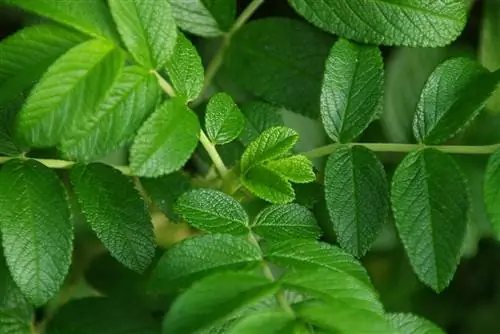- Author admin leonars@hobbygardeners.com.
- Public 2023-12-16 16:46.
- Last modified 2025-06-01 06:02.
When arms and legs itch violently after gardening in the spring, only a few affected gardeners suspect fleas; The human flea is considered almost extinct. Sometimes other species of tiny bloodsuckers target humans because their main hosts are still in hibernation or in sunny climates. Read here how you can arm yourself against the itching pain and put a stop to the infamous goings-on.

What helps against fleas in the garden?
To prevent fleas in the garden, abandoned nests should be disposed of in winter and nest boxes should be cleaned. If you have a flea infestation, it is advisable to put clothes in the freezer, wash your body regularly and, if necessary, spray it with Autan and set up flea traps.
How do fleas actually get into the garden?
Names such as bird flea, hedgehog flea or mole flea express the close relationship between the respective flea species and its main host. For better or for worse, the fleas are not tied to a specific host, because the bloodsuckers are not picky in an emergency. After a mild winter, the pests can awaken when their traditional blood suppliers are still in hibernation or in the sunny south. In this case, the beasts have no qualms about attacking the hard-working gardener.
Immediate measures and home remedies - this is how you ward off fleas
Once you have discovered the first fleas or their bite marks on your skin, take action straight away. Fleas multiply explosively and do not stop at your home. There are currently no approved means available to combat pests in the garden. How to act correctly now:
- Put all clothing in a plastic bag and put it in the freezer
- Examine all exposed areas of the body regularly and wash them several times a day
- Before entering the garden: spray with Autan (€5.00 on Amazon), put on rubber boots and long pants
- Prohibit children and pets from gardening until the plague ends
- Flea trap: Fill deep plates with soapy water and place a candle in the middle
The haunting is usually over when the main hosts return to the garden. You won't have to deal with fleas for more than 4 to 6 weeks. By the time frost sets in in winter, your green kingdom will be free from the plague. If you take the recommended preventive measures during the cold season, you will be spared the itchy torment next year.
Effective preventive measures - this is how you stay safe from fleas
Fleas and their brood overwinter in the nests of their main hosts to wait for their return the next spring. By disposing of abandoned nests and cleaning nest boxes in winter, you also remove the potential flea infestation. It is important to note that nesting material is not disposed of in the compost, but rather in a plastic bag with household waste.
Tip
Fighting rats in the garden with deadly poison or snap traps is closely linked to the risk that rat fleas will then pass on to people. The dangerous disease vectors like to choose the gardener as a replacement host if their main host has been killed. By scaring away the pests, you avoid this danger. Otherwise, it should be ensured that every dead rat is removed from the garden promptly.


